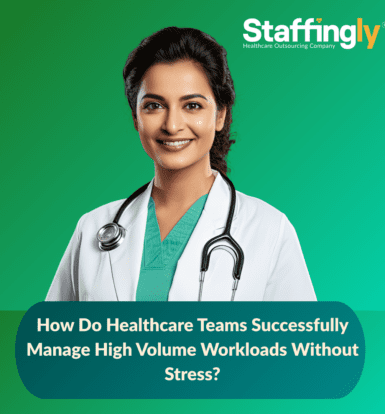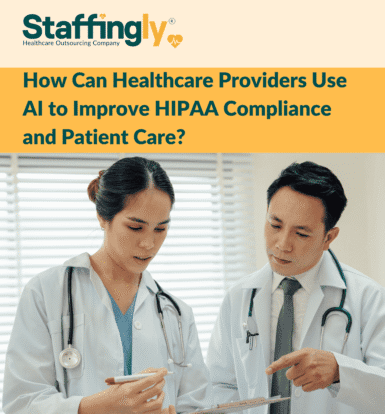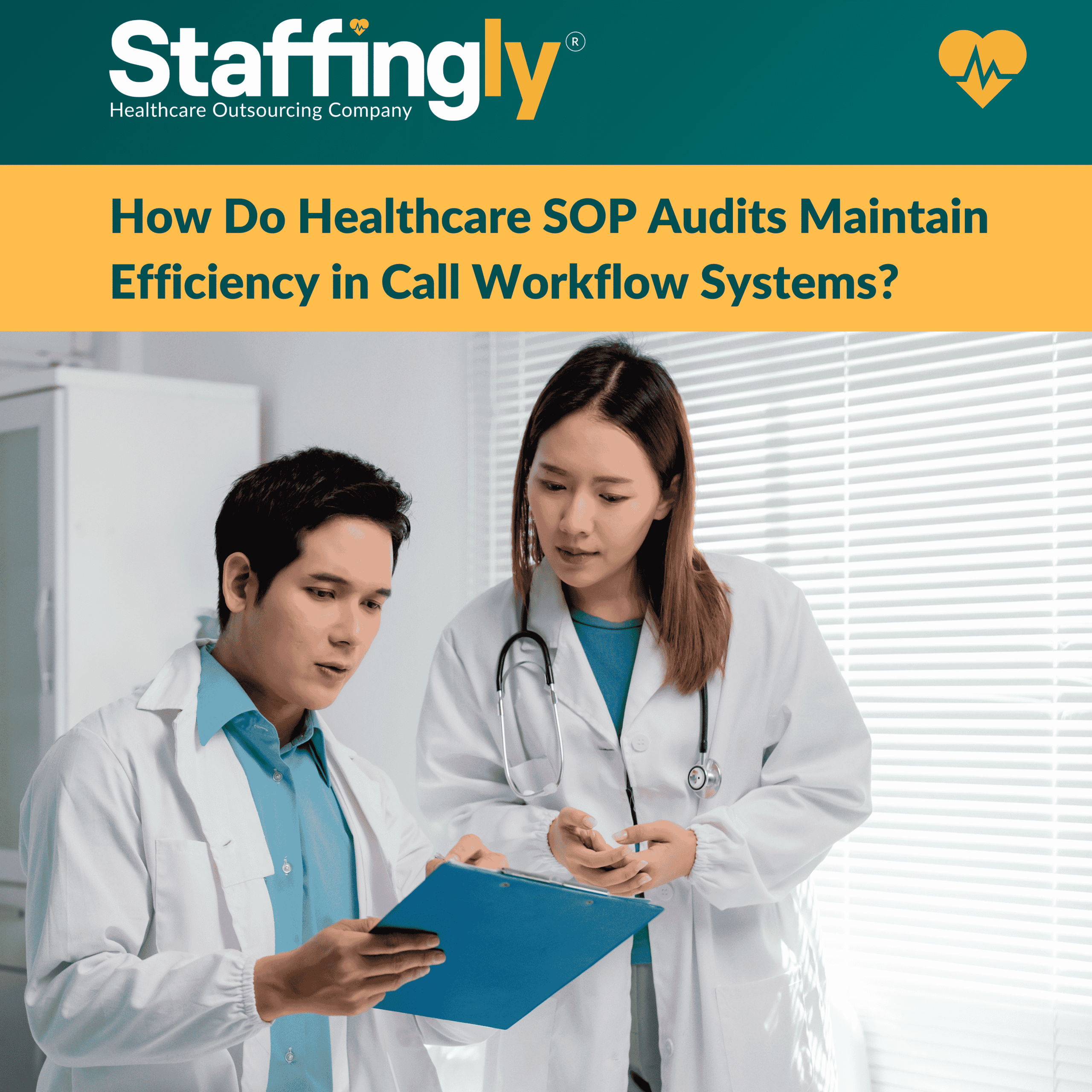On-Demand Outsourcing BPO Services for Healthcare Providers With 24/7 Coverage!
Save up to 70% on staffing costs!
Browse Specialty Staffing Services
Why Is Quarterly HIPAA Compliance Training Critical for Healthcare Staff?
In today’s fast-evolving healthcare landscape, protecting patient trust and ensuring data security is paramount. Regular HIPAA compliance training plays a critical role in safeguarding sensitive patient information and fostering a culture of accountability and care. For healthcare professionals, this training reinforces the importance of adhering to HIPAA standards, ensuring that patient health information (PHI) is handled with the utmost care. This article explains why quarterly HIPAA training is essential for healthcare professionals and how it directly benefits patients. Protecting Patient

How Can HIPAA Call Support Cut Patient Hold Times in Healthcare by 50%?
In the fast-paced healthcare environment, efficient communication is crucial for delivering quality patient care. Long hold times during phone calls can frustrate patients, delay care, and increase the workload on healthcare staff. HIPAA-compliant call support, combined with advanced chatbot technology, provides a solution that reduces patient hold times by up to 50% while maintaining the security of protected health information (PHI). This article explores how healthcare providers can use these tools to enhance patient experience, streamline operations, and maintain compliance

How Do Healthcare Teams Successfully Manage High Volume Workloads Without Stress?
High patient volumes are a common challenge in healthcare, whether due to flu season, emergency surges, or a busy appointment schedule. These spikes can put tremendous pressure on healthcare teams, increasing the risk of burnout and potentially compromising the quality of care. However, with the right strategies, tools, and a proactive mindset, healthcare providers can handle these busy periods efficiently while maintaining high-quality care. This article explores eight actionable approaches that can help healthcare professionals manage peak workloads effectively and

How Can Healthcare Providers Use AI to Improve HIPAA Compliance and Patient Care?
Artificial intelligence (AI) is transforming healthcare by improving patient outcomes, streamlining operations, and ensuring compliance with regulations like the Health Insurance Portability and Accountability Act (HIPAA). As healthcare organizations manage vast amounts of sensitive patient data, AI offers innovative solutions to maintain HIPAA compliance while elevating the quality of care. This article explores how AI can help healthcare providers achieve both objectives effectively. Strengthening Data Security and Privacy with AI HIPAA mandates strict protection of protected health information (PHI). AI

How Can Prior Authorization Scheduling Enhance HIPAA Compliance in Healthcare?
In healthcare, managing patient data securely while ensuring compliance with regulations like the Health Insurance Portability and Accountability Act (HIPAA) is critical. Prior authorization (PA), a process requiring insurance approval before certain procedures or medications are administered, is a key component of healthcare operations. When managed effectively, prior authorization scheduling can enhance HIPAA compliance by safeguarding protected health information (PHI). This article explores how streamlined prior authorization processes can support HIPAA compliance in healthcare settings. Prior Authorization and HIPAA Compliance

How Do Healthcare SOP Audits Maintain Efficiency in Call Workflow Systems?
In the fast-paced healthcare industry, call workflow systems are essential for managing patient interactions, streamlining operations, and ensuring high-quality service delivery. From appointment scheduling to insurance verification and medical inquiries, these systems are the backbone of efficient patient communication. However, without well-defined Standard Operating Procedures (SOPs) and regular SOP audits, call workflows can become disorganized, inefficient, and prone to errors. This article explores the critical role of SOP audits in healthcare call centers, their benefits, and best practices to optimize

Why Are Healthcare Providers Struggling with Insurance Inquiries and Billing Issues?
In U.S. healthcare, wait times on phone calls or in waiting rooms are often seen as inconveniences but hold untapped potential to enhance patient knowledge, improve patient care, and tackle insurance inquiries and billing issues. By using informative hold music and waiting room communications, clinics can educate patients, reduce administrative burdens, and boost patient satisfaction. Partnering with Staffingly, a leader in healthcare outsourcing, can optimize these efforts. This concise article explores how clinics can leverage wait time, its benefits, and

Can Healthcare Clinics Use Wait Time to Improve Patient Knowledge and Care?
In healthcare clinics, patients often experience wait times, whether on the phone or in waiting rooms, as they seek appointments, medical advice, or administrative support. Rather than viewing these moments as mere inconveniences, clinics can transform wait time into a valuable opportunity to enhance patient knowledge, improve patient care, and streamline operations. By leveraging informative hold music and strategic waiting room communications, healthcare providers can educate patients, reduce anxiety, and support doctors in delivering high-quality care. This article explores how
 Book a Demo to Build Your Team Today!
Book a Demo to Build Your Team Today!


 Read Case Studies
Read Case Studies 



 Virtual Medical Assistants
Virtual Medical Assistants



